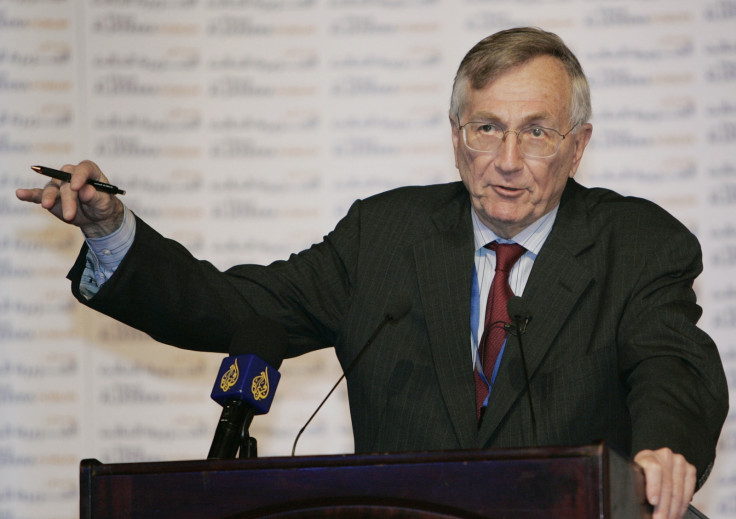US asserts Assad is behind suspected Syrian chemical weapon attack
Sarin was allegedly used but Syria 'categorically denies' the claim.
United States officials have said they are confident Syrian President Bashar al-Assad is behind a suspected chemical weapons attack, which killed at least 58 people.
In a statement, President Donald Trump said: "[The] chemical attack in Syria against innocent people, including women and children, is reprehensible and cannot be ignored by the civilised world.
"These heinous actions by the Bashar al-Assad regime are a consequence of the past administration's weakness and irresolution," he added.
It was also alleged that the chemical agent used in the attack on the northern province of Idlib was sarin, which would constitute a war crime.
Syria "categorically denied" using sarin or any other agent, stating it had complied with all aspects of the Chemical Weapons Convention overseen by the Organisation for the Prohibition of Chemical Weapons (OPCW) since it joined the treaty in 2013.
The OPCW said it was not currently in a position to establish the perpetrators of the attack, but was in the process of gathering and analysing evidence.
The United Nations (UN) Security Council has called an emergency meeting to be held on Wednesday (5 April) in response to the attack.
Despite US assertions that the Assad government is behind the use of chemical weapons, it is yet to be independently verified.
The allegations will undoubtedly overshadow a meeting regarding Syrian aid in Brussels as well as future peace talks, which have so far progressed "optimistically", according to the UN's Syria envoy Staffan De Mistura.
The timing of the attack prompted security analysts to question why Assad would use chemical weapons, if indeed he has done.
Charles Shoebridge, a former Scotland Yard detective and counter-terrorism officer, said: "You have to ask the basic question, 'What would be the motivation of Assad?' – particularly at this moment in time when he is making great victories, sweeping across Syria in the fight against the rebels.
"What would be the motivation at this particular time to attract the condemnation of the world's community by carrying out this kind of attack, which actually ... is of very little military advantage?"
The timing of the attack also drew similarities to the 2013 chemical attack in eastern Ghouta, which followed a proclamation by former US President Barack Obama that use of such weapons would be a "red line".
In response to Tuesday's (4 April) attack, Trump took a shot at his predecessor and said it is "a consequence of the past administration's weakness and irresolution".

However, a report by Seymour Hersh – a veteran war correspondent and Pulitzer Prize journalist – published in the aftermath of the Ghouta attack, demonstrated that anti-Assad militants developed sarin capabilities, but intelligence reports made no mention of them, making Assad the only suspect.
Hersh wrote: "Barack Obama did not tell the whole story this autumn when he tried to make the case that Bashar al-Assad was responsible for the chemical weapons attack near Damascus on 21 August [2013].
"In some instances, he omitted important intelligence, and in others he presented assumptions as facts.
"Most significant, he failed to acknowledge something known to the US intelligence community: that the Syrian army is not the only party in the country's civil war with access to sarin."
Such evidence has not arisen in the case of the attack in Khan Sheikhoun at this time.
Many on social media asked how – if the attack had been sarin – White Helmet rescue workers were able to operate without gloves. Sarin is estimated to be 26 times more deadly than cyanide and immediately penetrates the skin.
Using bare hands and dust masks to treat alleged Sarin victims 🤔 pic.twitter.com/1fGBwbgrHy
— Ian Grant (@Gjoene) April 4, 2017
© Copyright IBTimes 2025. All rights reserved.






















